Do you speak Chinglish?
"Chinglish" is commonly referred to in China where official translations into English have for a long time been done on the cheap. The result? Either highly offensive, hilarious or absolutely incomprehensible.
Issued on: Modified:

"Chinglish" is commonly referred to in China where official translations into English have for a long time been done on the cheap. The result? Either highly offensive, hilarious or absolutely incomprehensible.
Chinese translated into foreign languages has been an amusing topic for visitors to China for decades. Far from politically-correct signs such as "Deformed Man Toilet" (meaning toilet for the disabled ) have rarely faced criticism because of their endearing charm. But as the Olympics near, many of these special signs are disappearing from the streets of Beijing as part of campaign to stamp out bad English grammar and style. Lamenting the coming extinction, web users are compiling images of the phrases, and there is even a book available to cherish the memories. Here's our pick of the best.
More Chinglish
"I tried to be a proper translator but I realised it was too expensive for them"
Nicolas Carré worked as a translator for written and spoken texts in museums around Beijing two years ago. He is a now a sommelier in a French restaurant there.
When I did the translations for the Beijing museums I was really surprised at how little room I had to manoeuvre. It had catastrophic results. I remember doing the translations for the coin museum particularly well. When I read the text I had to laugh just trying to work out what it meant in French. I tried to be a proper translator but I realised it was too expensive for them. They prefer to hope that the tourists will be able to work out the meaning than to pay a translator good money to do it properly. It's mainly students in their first or second years of studying English that end up doing these jobs."
"They don't like to give jobs to foreigners"
Camille F is a student in China. She's been living in Beijing for two years and is following preparations for the Olympics there.
One of the ones that really makes tourists laugh is "Welcome to see you again". And you see it everywhere: all over town and in the airports. It really used to make me laugh at first but you get used to "Chinglish" when you live here.
I don't think these signs will disappear completely. People who are truly bilingual don't do this kind of job because they can get something better. In China the employment system works with a strange logic and I don't think your level of English is determining factor for the job. Most of the current generation working in management didn't study abroad. But they don't like to give jobs to foreigners so even though there are plenty of Australians and English people they never get high-up posts. The level of trust is still low. There's evidently an element of propaganda to it."
No photoing or whoopla and let us do the birds friend then…
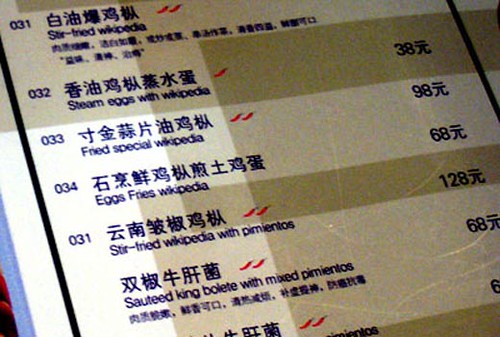
China is so advanced that Wikipedia is also available as a food source there. © Oliver Radtke.
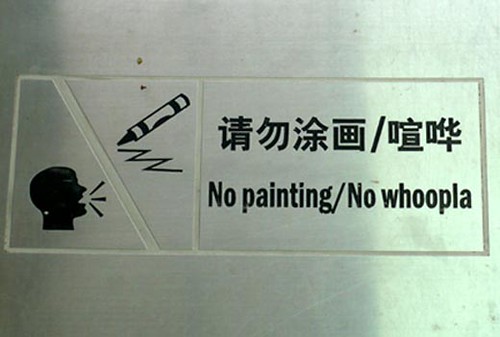
We can only presume that "whoopla" is noise, in light of the useful illustration. © Oliver Radtke.
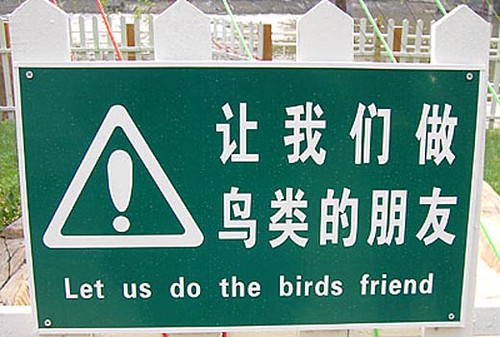
Despite sounding like a children's dance, this apparently means "Be nice to the birds". © Oliver Radtke.
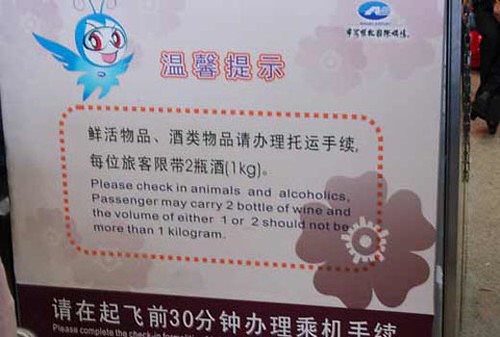
In case you were thinking of having a tipple before take-off, alcoholics are banished to the hold along with the animals apparently. © Everett Griffiths.
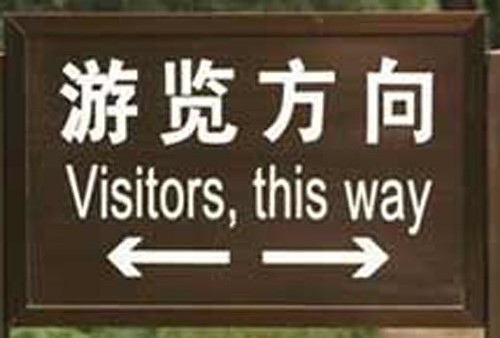
You choose. © Everett Griffiths.
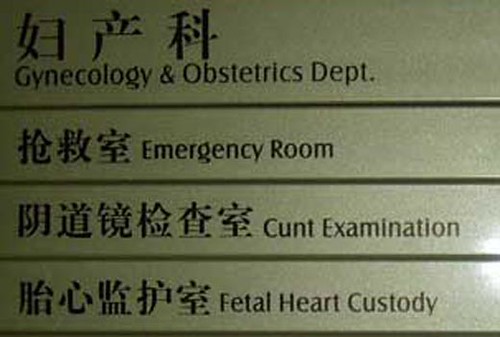
Why bother with gynaecology when you can use possibly the most offensive word in British English? © Everett Griffiths.

Another reference to female genitalia, only this time it's labelling a bottle of "Johnnie Worker", which we can only presume tastes like the famous Scottish whiskey, Johnnie Walker. © Jarrod D. Curry.
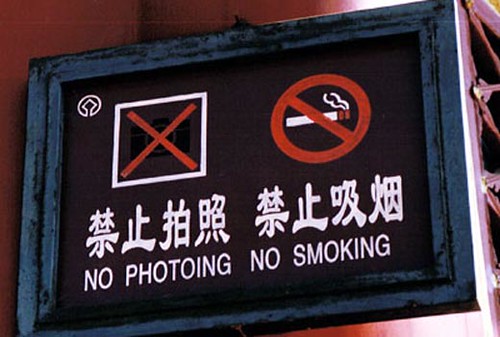
A very innovative way of using the gerund. © Oliver Radtke.